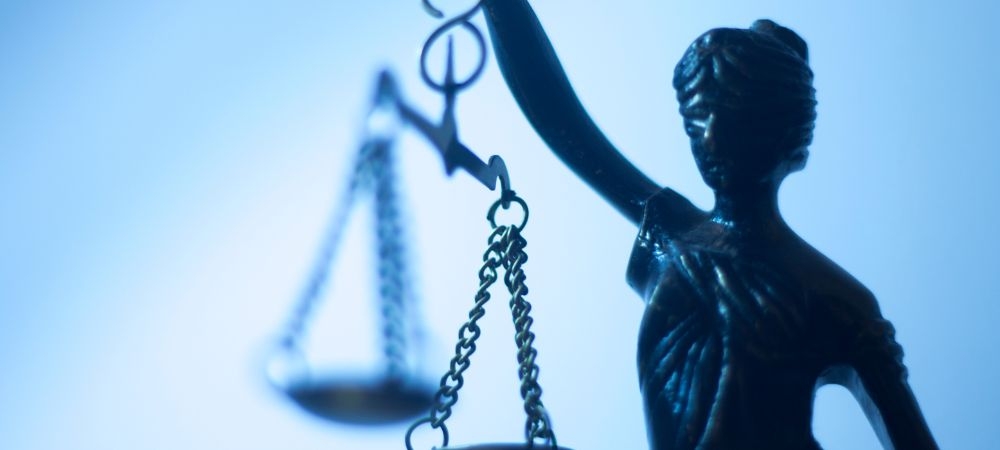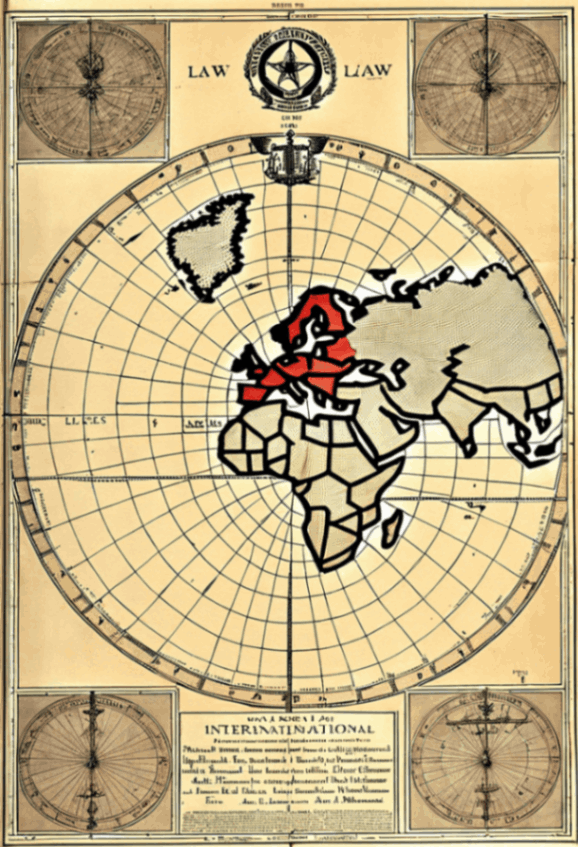

The Vienna Convention on Diplomatic Relations, adopted in 1961, is not merely a piece of paper but rather a cornerstone in international relations. It wasn't just born out of thin air; it has quite an intriguing historical background. Let's dive into it!
First off, diplomacy isn't exactly a new concept. It's been around for centuries, way before the Vienna Convention was even thought of. To read more see listed here. People have always needed to communicate and negotiate with each other, especially when different nations were involved. But gosh, these interactions weren't always smooth or even safe. In the olden days, diplomats could very well find themselves imprisoned or worse if they delivered bad news! There was no standard set of rules protecting them.
In the early 20th century, after two devastating World Wars shook the world to its core, there was this big realization: international politics needed some ground rulesstat! Nations understood that without clear guidelines and protections for their diplomatic agents, chaos would only reign supreme again. So there began serious talks about codifying diplomatic laws into something universally accepted.
It wasnt until 1957 that concrete steps towards what we now know as the Vienna Convention started forming. The International Law Commission (ILC), under the United Nations' umbrella, took up the task to draft a convention that'd be acceptable globally. They worked tirelessly for yearsimagine all those long debates and endless drafts!
Finally, in April 1961 at a conference held in Vienna (hence the name!), representatives from over 80 countries gathered to hammer out what would become history's most pivotal document on diplomatic relationsthe Vienna Convention on Diplomatic Relations (VCDR). Oh boyit wasnt easy getting everyone to agree on everything! But somehow through negotiations and compromisesthey did it!
Now about adoption...it didnt happen overnight either! Even after its creation in '61, member states had to ratify it individually for it to gain real traction worldwideits like having everyone sign-off on an agreement before moving forwardtedious yet crucial work indeed.
By mid-1964 though enough countries had ratified this vital document making VCDR effective internationally by April '64! And guess what? Today almost every country around our globe recognizes and adheres by these conventions ensuring safer more structured diplomatic engagements everywhere!
So there you have ita brief dive into how historical need spurred global consensus culminating into one heckuva important treaty shaping modern-day diplomacy via none other than VCDR itself!
The Vienna Convention on Diplomatic Relations, established in 1961, is a cornerstone of international diplomacy. It's got these key provisions and principles that are downright essential for the functioning of diplomatic missions worldwide. Let's dive into some of em.
First off, there's the principle of inviolability of diplomatic agents. This means diplomats can't be arrested or detained by the host country. They ain't subject to any form of interference by local authorities. Wow, right? This ensures they can perform their duties without fear or hindrance pretty important stuff!
Then there's this thing called diplomatic immunity. It ain't just about avoiding arrests; it extends to civil and administrative jurisdiction too. Basically, diplomats cannot be sued or face legal action in the host countrys courts. However, this doesnt mean they're above the law entirely theyre still accountable back home.
Oh! Dont forget about the inviolability of embassy premises either! The host country must protect and respect the embassy buildings at all times, no matter what happens inside them. Host authorities can't enter without permission from the head of mission it's like a little piece o foreign land within another state.
Communications also get special protection under this convention. Diplomatic mail and correspondence are sacrosanct and shouldnt be tampered with or even opened by anyone in the host nation.
Now lets talk about personal privileges for diplomats themselves - exemption from taxes and customs duties is a big one! They dont pay taxes on their income earned as part of their official functions nor do they pay import duties on personal goods brought into the host country for their use.
However, not everything's covered under these immunities - actions outside official functions may not enjoy such protection. For instance, if a diplomat goes rogue (heaven forbid!), committing serious crimes unrelated to his work might see him stripped off immunity upon request from his own government.
A crucial point often missed is that while these protections exist to ensure smooth international relations, mutual respect forms its bedrock. Abuse by either party just isn't acceptable; both sending and receiving states have responsibilities to uphold these standards rigorously.
In conclusion (phew!), maintaining bilateral relationships hinges on adhering strictly but reasonably to these principles enshrined in Vienna Convention on Diplomatic Relations an indispensable framework ensuring diplomacy thrives globally despite occasional hiccups along way.
The United States Constitution is the earliest written nationwide constitution still in operation, originally ratified in 1788, it has been a design worldwide for administration.
Pundit Residential Or Commercial Property Law not only secures creators however dramatically gas the worldwide economic climate by encouraging the creation and circulation of ideas and advancements.
Environmental Law got prestige in the late 20th century as global recognition of ecological problems grew, leading to thorough laws intended at protecting the earth.
Tax Regulation in the United States includes over 70,000 web pages of guidelines, making it one of the most intricate tax systems in the world.
The Vienna Convention on Diplomatic Relations, established in 1961, is like a cornerstone of international diplomacy. It's what makes sure that diplomats can do their jobs without constantly looking over their shoulders. But let's not get too fancy here - it's basically about giving them certain immunities and privileges so they can represent their countries effectively.
First off, diplomats ain't gonna be arrested or detained by the host country. That's a biggie. Imagine trying to negotiate peace or trade deals while worrying if you're going to be thrown in jail for some minor infraction! The convention says nope, that's not happening.
Then there's the whole thing about inviolability of embassy premises. Wow, that's a mouthful! In simpler terms, it means embassies can't be entered by the host country's officials without permission. Its like saying "Hey, this little piece of land belongs to us, dont come in unless we say you can!" It helps prevent any shenanigans where a diplomat could be harassed right inside their own workspace.
Now lets talk about taxes who likes paying those? Diplomats actually don't have to pay most local taxes. They also don't get searched through customs when bringing stuff into the country. Can you imagine dragging your entire household across borders and having every single item inspected? No thanks!
But all these privileges ain't just a free pass to misbehave; there are responsibilities attached too. Theyre expected to respect local laws and regulations even though they're kinda above them at times. And if they step outta line too much? The host country can declare them persona non grata which is just a fancy way of saying "get out now."
One more thing: family members of diplomats enjoy similar protections and immunities which ensures that their loved ones aren't targeted as a way of influencing the diplomat's actions. Phew! That must bring some peace of mind.
So yeah, while these immunities might seem like special treatment (and they are), they're essential for maintaining smooth diplomatic relations between countries around the world. Without 'em, itd probably be chaos with constant arrests and harassment disrupting international dialogue everywhere.
In short (or maybe not so short!), the Vienna Convention on Diplomatic Relations strikes a balance granting necessary freedoms while still keeping some level of accountability in check for diplomats doing their vital work globally.


The Vienna Convention on Diplomatic Relations (VCDR) of 1961 ain't just any international agreement; it's a cornerstone in modern international law. This treaty, which most countries have signed up to, is pivotal for maintaining and regulating diplomatic relations between states. Without it, you can bet the world would be a lot more chaotic.
First off, let's talk about the role of the VCDR. At its heart, this convention sets out rules that govern diplomatic interactions. It outlines who's considered a diplomat and what kind of immunities and privileges they get. For instance, diplomats can't be arrested or sued under the laws of their host countries. And hey! Their embassies are like little pieces of foreign soilcompletely inviolable.
But why's all this important? Well, imagine if every time a diplomat took a step outta their embassy they could get nabbed by local authorities. It'd make conducting foreign policy almost impossible! The VCDR ensures that diplomats can do their jobs without fear of harassment or legal entanglements from the host state.
The significance of the VCDR doesn't stop there though. It's not merely about protecting diplomats but also about fostering peaceful coexistence amongst nations. By setting clear rules and expectations, it helps avoid misunderstandings that could escalate into conflicts. Think about itno one wants another Cold War scenario where tensions are through the roof because some diplomat got mistreated.
However, saying that the VCDR solves all problems wouldn't be right either. There've been instances where its provisions were stretched or outright ignored. Remember when embassies were stormed during political uprisings? Yeah, not exactly according to plan! But even then, having these guidelines provides an essential framework for resolving such crises diplomatically rather than violently.
In conclusion, while no piece of legislation is flawlessor universally respectedthe Vienna Convention on Diplomatic Relations plays an irreplaceable role in modern international law by defining how states should treat each other's representatives. Its significance lies in promoting stable and peaceful international relations through well-defined norms and protections for diplomats worldwide.
The Vienna Convention on Diplomatic Relations, established in 1961, is a cornerstone of international law. It sets the legal framework for diplomatic relations between independent countries and ensures that diplomats can perform their functions without fear of coercion or harassment by the host country. But how is this convention actually applied in real-life scenarios? Let's take a look at some case studies illustrating its application.
One notable example involves the United States and Iran during the 1979 hostage crisis. The American embassy in Tehran was taken over by militants, and dozens of U.S. diplomats were held hostage for 444 days. Despite clear violations of the Vienna Convention, which mandates that diplomats should be protected even in times of conflict, there was very little immediate recourse available to the United States through international law alone. It's not like they could just march in and retrieve their people without causing a huge international incident! However, this event did highlight how essential it is for all nations to respect diplomatic immunity as stipulated by the convention.
Another interesting case occurred between Russia and the United Kingdom with the Skripal poisoning incident in 2018. Sergei Skripal, a former Russian spy who defected to Britain, was poisoned along with his daughter Yulia on UK soil. The British government accused Russia of violating Article 41 of the Vienna Convention which obliges diplomats not to interfere in the internal affairs of another state. In response, numerous Russian diplomats were expelled from various countries around the world as an act of solidarity with the UK. This situation underscored how breaches of diplomatic norms can escalate tensions quickly but also showed that there's mechanisms within international diplomacy to address such issues.
A somewhat less dramatic but equally telling example involves traffic violations committed by diplomats stationed abroad. In New York City, foreign diplomats have racked up millions of dollars' worths unpaid parking fines over years! Under Article 31 of the Vienna Convention, diplomats enjoy immunity from civil jurisdiction; thus these fines often go unpaid because local authorities can't force them to pay up without breaching international agreements. While it may seem trivial compared to hostage crises or poisonings, it does illustrate one downside: sometimes individuals may exploit these protections for personal gain.
Then there's Chinas reaction when their diplomat was arrested briefly in Houston back in 1980 after getting into a brawl at a baryes you heard righta bar fight involving high-ranking officials! Beijing argued strongly that arresting any diplomat violated Article 29 which guarantees personal inviolability (basically saying "hands off our guy!"). Eventually he was released promptly due largely thanks again towards pressure exerted under provisions laid out within aforementioned treaty itself proving yet importance maintaining proper conduct ensuring smooth functioning global diplomacy even amidst unusual circumstances!
In essence though no legal framework perfect always needs adaptations based evolving political landscapes globally speaking terms relevance still remains unquestionable providing vital structure underpinning peaceful coexistence amongst nations despite occasional hiccups along way... So next time think about possible diplomatic spat occurring somewhere remember deep down roots probably trace back principles enshrined within good old trusty Vienna Convention itself!
The Vienna Convention on Diplomatic Relations, established in 1961, is a cornerstone of international law that outlines the privileges and immunities granted to diplomats. While this agreement aims to ensure the smooth conduct of diplomatic relations between countries, it ain't without its challenges and criticisms.
First off, one major issue folks often bring up is the potential for abuse. Diplomatic immunity grants diplomats freedom from arrest or detention, among other protections. This means they can't be prosecuted under the host country's laws while they're serving there. Now, most diplomats respect these rules and behave accordingly. But there are instances where some take advantage of their status to break local laws with impunitythink unpaid parking tickets at best or more severe crimes like smuggling or even assault.
Then there's the matter of justiceor rather, lack thereoffor victims when a diplomat commits a crime. The principle of diplomatic immunity means that if a diplomat does something illegal, local authorities can't do much about it. They can declare the individual "persona non grata" and send them packing back home, but that's about it. For people affected by such actions, especially serious crimes, this feels like anything but justice.
Additionally, there's also an argument regarding equality before the law. Many critics argue that diplomatic immunity creates a class of individuals who are above the law just because they're representing another country. Its like saying one person's duties make them more important than another's rightsa notion that's kinda hard to swallow for many.
One shouldn't forget about how diplomatic immunity can strain international relations too! Imagine a scenario where a diplomat from Country A commits an offense in Country B but faces no legal consequences due to immunity provisions; it's bound to create tensions between those nations.
However (and here comes an interjection), let's not dismiss all aspects of diplomatic immunity as inherently flawed or unnecessary! It's designed primarily to allow diplomats to perform their functions without fear of coercion or harassment from host nationsan essential aspect for maintaining international diplomacy.
In conclusion (oh boy!), while the Vienna Convention on Diplomatic Relations plays an indispensable role in fostering global interactions by protecting diplomats through various immunities and privileges, it's clear that these very protections aren't free from criticism and misuse either! Addressing these concerns requires finding ways to balance effective diplomacy with ensuring accountabilitycertainly no easy task!
Oh boy, the Vienna Convention on Diplomatic Relations! Its one of those things you might not think about much, but it actually shapes a lot of how countries interact. So, let's dive into its future prospects and potential reforms.
First off, the Vienna Convention's been around since 1961. It's like an old friend to diplomats everywhere. But just because it's been useful doesn't mean it shouldnt get a little update now and then. I mean, come on, we're living in the age of technology and social media; things have changed quite a bit since the '60s.
One big thing to look at is cyber diplomacy. Back then, nobody was sending emails or tweeting policy changes. Now? Well, that's everyday stuff. The convention could really use some tweaks to cover cyber espionage and digital privacy for diplomats. Imagine if sensitive information got leaked that'd be a diplomatic disaster!
And hey, what about environmental concerns? Climate change wasnt even on the radar when this thing was written up. Nowadays, embassies are more than just buildings; theyre supposed to be green spaces too! Incorporating sustainability guidelines would make sense.
Now lets talk about immunity diplomatic immunity specifically. Sure, it's necessary so diplomats can do their jobs without fear of harassment or worse from host countries' laws. But there've been cases where folks took advantage of this immunity to dodge serious crimes. We can't have that! Some sort of reform here would help balance protection with accountability.
Oh and another thing inclusivity! Back when this convention started out, international relations were pretty much an old boys' club. Today? Not so much! Theres way more diversity in diplomacy now which is great but also calls for updated language and policies that better reflect our current world.
But wait... don't think we should toss out everything that's working fine just yet! The core principles like inviolability of diplomatic premises or free communication channels are still rock solid foundations for international relations.
In conclusion (yes I know), while the Vienna Convention has stood strong over decades there's no harm in sprucing it up a bit for modern times right? With smart reforms addressing cyber threats environmental issues accountability and inclusivity it'll continue being as relevant as ever ensuring smooth functioning between nations worldwide.
